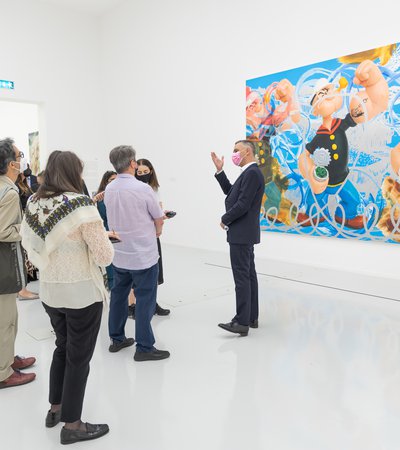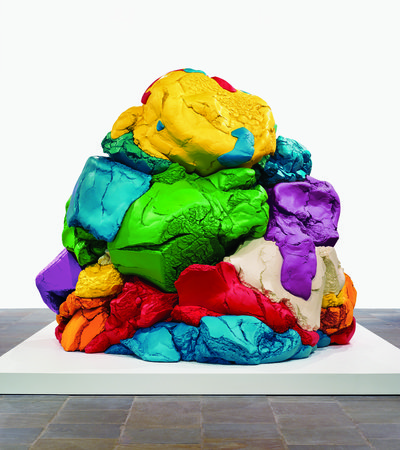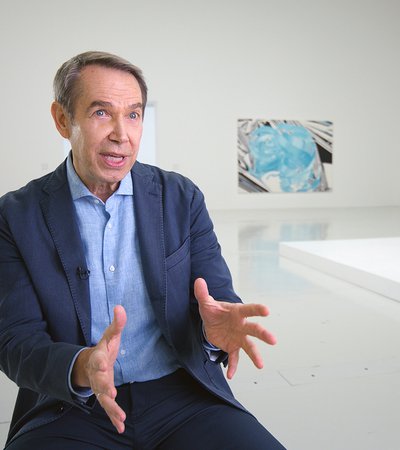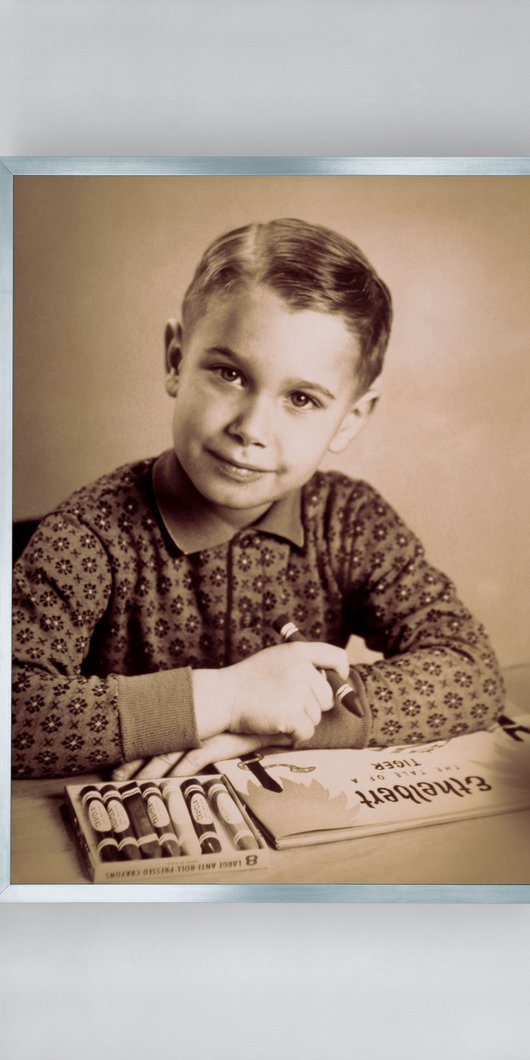Taken together, the exhibition and the catalogue provide an expansive self-portrait that doubles as the artist's reading of American culture. The excerpts below reveal just a few of Koons' thoughts on his responsibility as an artist, his approach to creating art and his connection to Doha.
The exhibition Jeff Koons: Lost in America presents a panoramic view of Koons’ work as seen through his own autobiography, beginning with his childhood in suburban Pennsylvania.
The accompanying catalogue is introduced by an interview between the artist and the exhibition's curator, Massimiliano Gioni, with additional quotations from Koons providing insights throughout the book.
On Audiences
"I have always felt this moral responsibility to try and make something that makes viewers realize I really care about them and that this whole experience of art is a shared experience of communication.”
“Throughout my life, I have learned that art can be used to disempower, to make you feel guilty or embarrassed about what you like—about your upbringing, about your taste and about your desires. That is quite tragic because you can be disempowered even before you are given the opportunity to have an artistic experience, or before you confront something and are able to interact with it. There’s nothing that could be more false than that feeling of superiority and that feeling of disempowerment. I believe you don’t have to bring anything to an artwork other than yourself.”
“I’ve tried to make work that any viewer, no matter where they come from, would have to respond to. If they cannot do that, it would only be because they have been told they are not supposed to like it.”
“ Art, for me, has always been a vehicle. ”Jeff Koons
On The Power of Art
"I know this might sound strange, but I have really always felt that my genes and my DNA have been changed by many of the art experiences that I’ve had. Art can do that. I believe it really can. When you look at something, your mind not only changes, but your entire DNA also does."
"Art, for me, has always been a vehicle. Something that I’ve always been able to get lost in, something I’ve been able to create a reality out of and lean on during difficult times."
On Process
“When I make my work, I never consciously sit down and think about creating a certain type of icon. I just listen to myself, and I try to bring forth archetypal images. That’s all that I try to do, to make something that is charged, that you feel physically, that you feel intellectually, that you feel in your senses.”
“I have always tried to make works that would have a sense of vastness about them and the sense of a great, intricate vocabulary—even a universal vocabulary, I would dare to say.”
“Since I was very young, I learned to accept people as they are and to accept myself as I am. I think that kind of attitude really influenced my work a lot—this desire to meet people’s needs.”
On Doha
"I started going to Doha in 2000. I was originally invited by Sheikh Saud bin Mohammed Al Thani, who at the time was the Minister of Culture and was developing a series of collections and museums. . . . I have since returned many times and have seen how the city and the cultural offerings have grown. I have seen wonderful shows there and I remember when the Museum of Islamic Art opened, which was incredible. To finally have an exhibition in Doha is a bit of a dream come true."
Read More

Jeff Koons: Art, Audience and Controversy

Curator Tour of Jeff Koons: Lost in America

Jeff Koons' Hallucinatory Portrait of America
